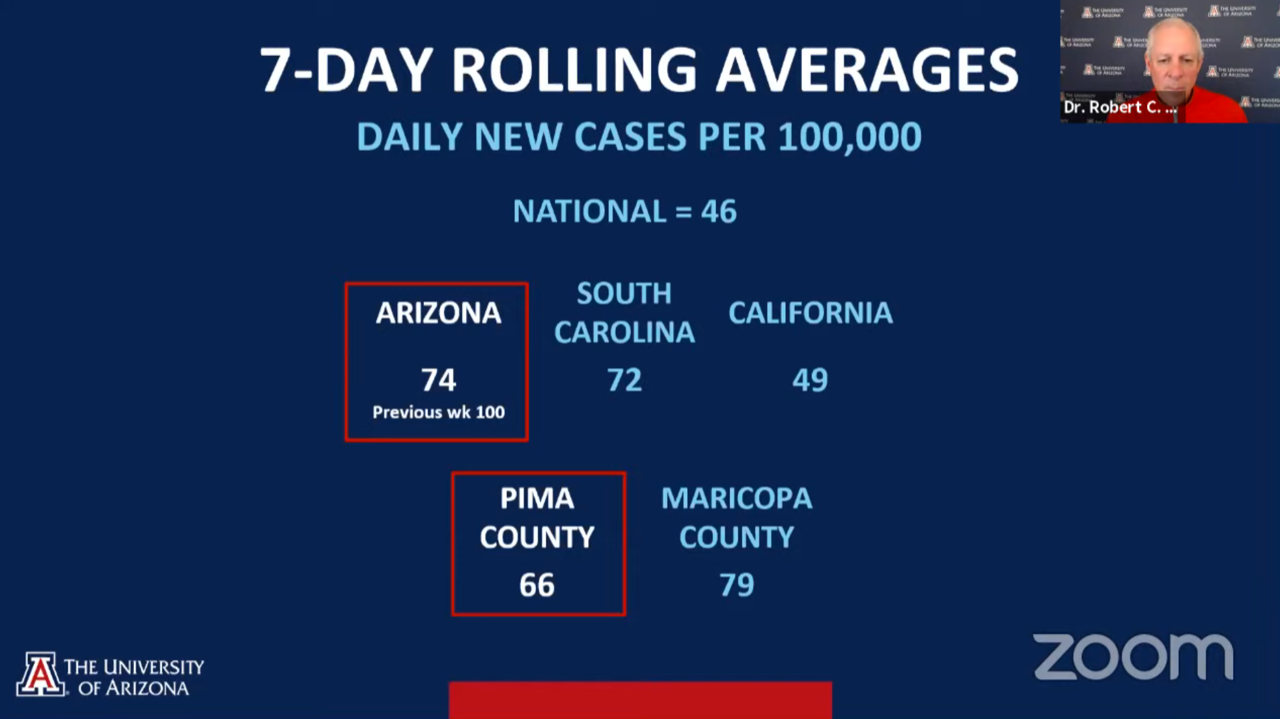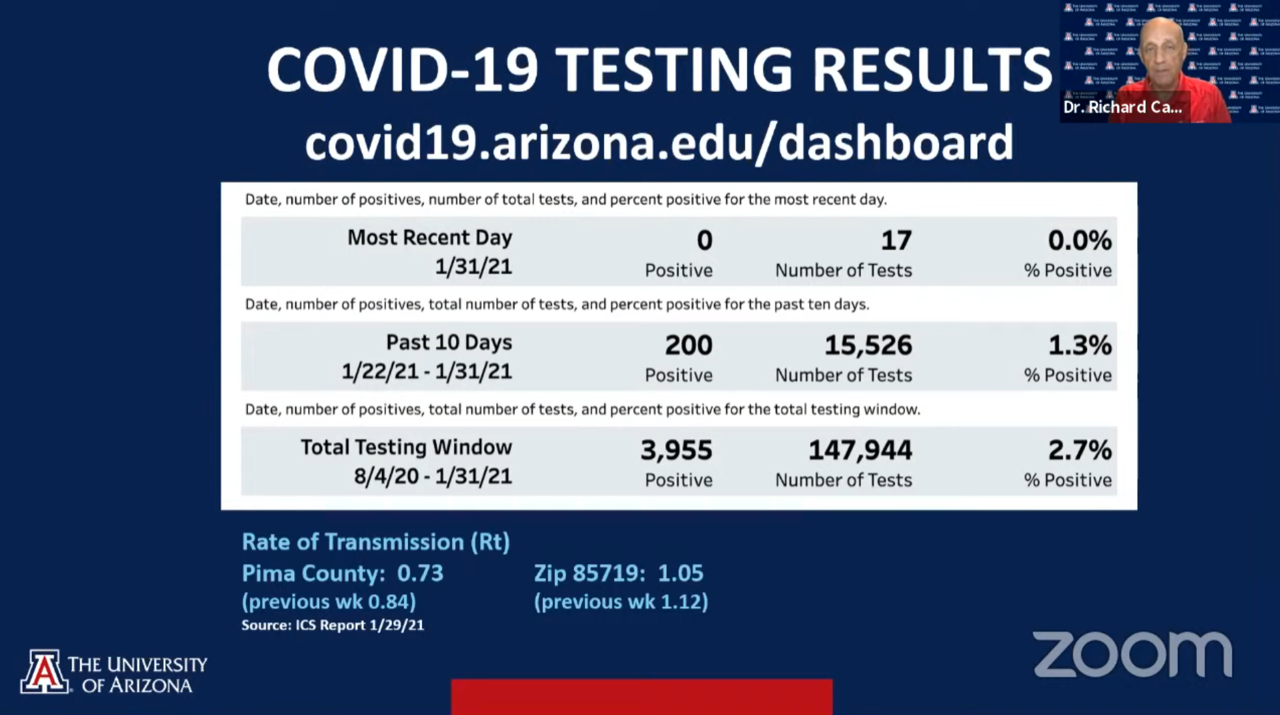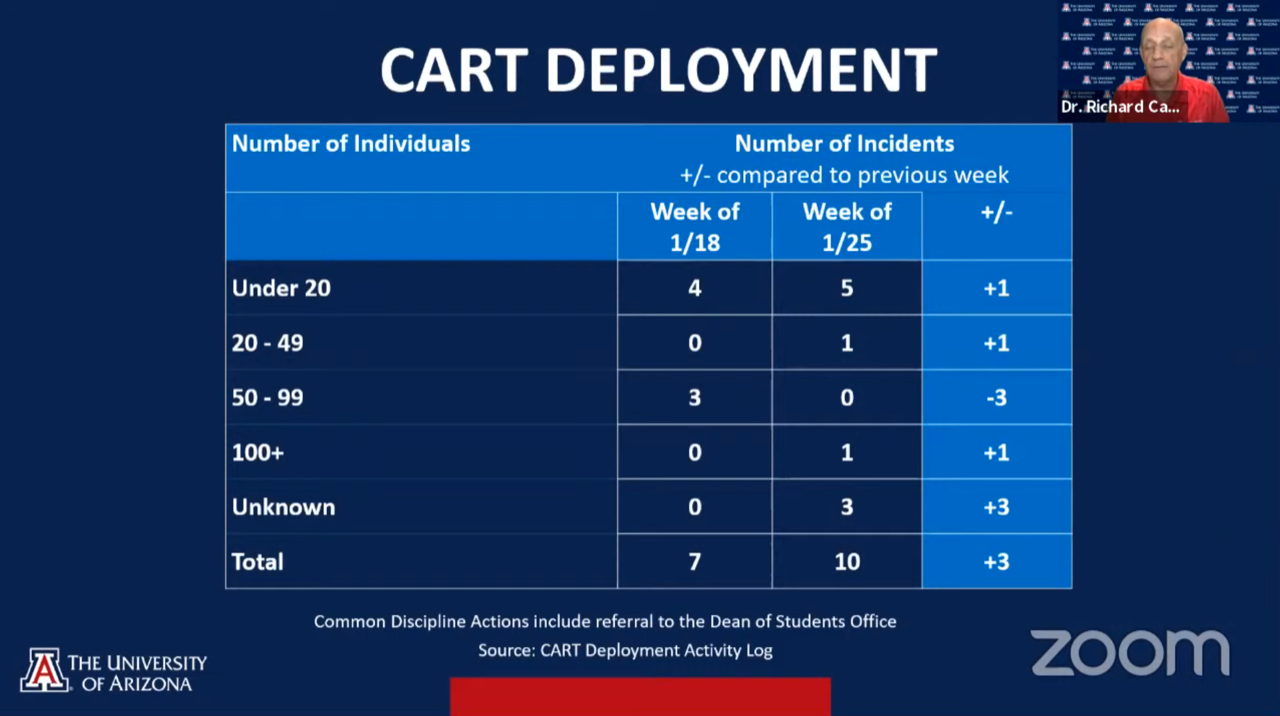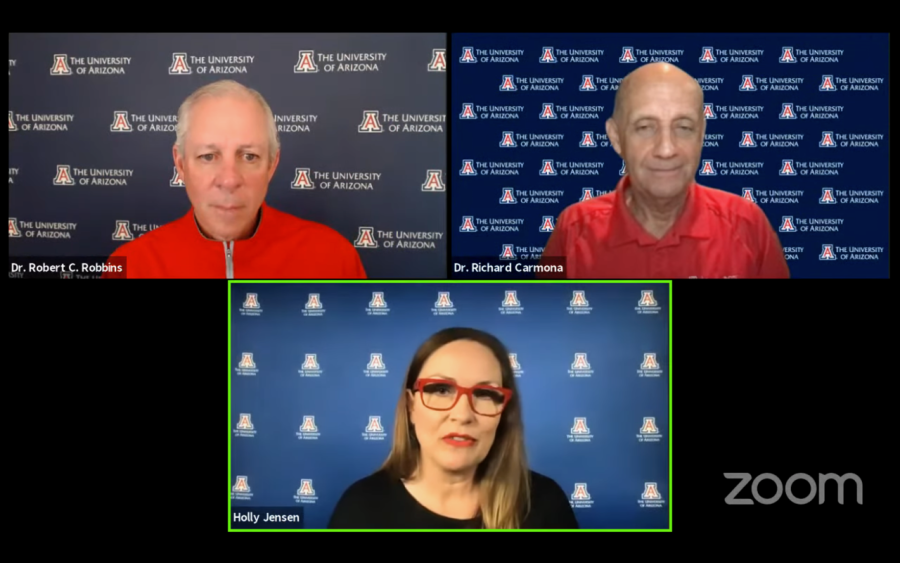The University of Arizona’s COVID-19 virtual university status update team discussed updated COVID-19 data, new testing requirements for on-campus residents and briefly touched on a letter from the Coalition for Academic Justice at UArizona during their Monday, Feb. 1, meeting.
The UA will remain in Phase 1 of the reentry protocol, which permits only “essential” classes of 50 or less to meet in person.

“The daily cases per 100,000 remain very troubling,” UA President Dr. Robert C. Robbins said. “This is of particular importance because public health experts are anticipating another national surge due to the circulation of new variants of this deadly virus.”
The UA is increasing the volume of people it can serve at its point of distribution and will now be running six days a week. This past week, it delivered 5,810 vaccinations to essential education workers, including childcare staff, K-12 educators and higher education faculty and staff at both the UA and Pima Community College.
“Even with a vaccine, we must continue basic public health measures to get an end to this pandemic,” Robbins said. “I look forward to vaccinating as many as we can, as fast as we can.”
From Jan. 22 to Jan. 31, the university administered over 15,000 COVID-19 tests, 200 of which came back positive. This is a positivity rate of 1.3%, a decrease from the previous week’s reported rate of 2% and below the threshold of 5%.

The rate of transmission of COVID-19 was 0.73 at the county level and 1.05 for the university zip-code, both of which are down from the previous week’s reported Rt. The task force wants to see the university’s Rt below the 1.0 threshold.
“What we’re seeing, at least in the recent past, is a sustained reduction in transmissibility,” said task force Director Dr. Richard Carmona.
After first reminding viewers that Arizona was still one of the biggest hotspots for COVID-19 in the nation, he proceeded to express some optimism about the near future.
“We are feeling good that this could be the start of a sustained decrease in the number of cases,” Carmona said. “As the president pointed out, unless we continue to work very diligently, ‘mask up, bear down’ and vaccinate everyone, this virus will remain in our environment for some time.”
The Campus Area Response Team was deployed to 10 incidents of large gatherings. Five of these incidents were gatherings of under 20 individuals, and one of these incidents was a gathering of 100+ individuals.

“We recognize that there is a great deal of [COVID-19] exhaustion across the entire population,” Carmona said. “Our students really feel deprived if they can’t hang out with their friends and can’t give a high five or a hug.”
Incidents which require discipline are referred to the Dean of Students Office.
University housing residents will be required to get tested for COVID-19 twice a week, beginning this week.
Holly Jensen, vice president of UA Communications, confirmed with the Daily Wildcat following the virtual briefing that housing residents must take antigen tests as part of their two weekly tests. The saline-gargle test will not count toward this requirement because results take 48-72 hours to get back.
This new testing requirement for on-campus residents is a result of recommendations from public health officials in light of the high numbers of COVID-19 cases in the university area. On-campus residencies are especially prone to outbreaks and high rates of transmission because students live in close quarters.
The Wildcat also asked Robbins for a response to a letter from CAJUA, dated Jan. 20, which urged the president to prioritize vaccinations for staff working closely among students, such as janitorial staff, as well as reaching out to those who lack computer access to make vaccine appointments.
“We’ve made progress getting our vulnerable frontline workers, whether at the student union and foodservice, [or] those facilities maintenance people and volunteers that are out giving the vaccine and doing testing and working in our dorms and in our isolation dorms,” Robbins replied. “All of those people are being prioritized and being vaccinated as soon as we possibly can.”
Robbins later explained that the university is reaching out to frontline staff through their supervisors but didn’t return to the issue of computer access. He said that the university hopes to have all staff vaccinated by April 1.
The team will reconvene for its next meeting on Monday, Feb. 8.
Follow Kristijan Barnjak on Twitter









